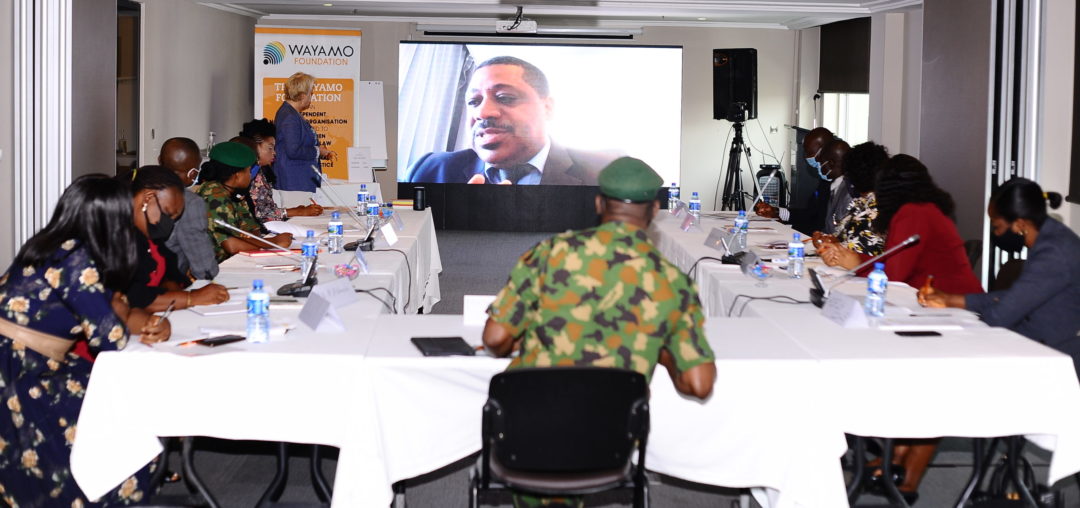Wayamo brings prosecutors and investigators together at one-day retreat in Abuja
2 November 2020, Abuja, Nigeria
Leading Nigerian prosecutors and investigators who participated in previous Wayamo workshops have identified insufficient communication between their respective agencies as one of the main challenges facing them in their day-to-day work. More prosecution coordination is called for, they say. Indeed, the perceived need for prosecution-guided investigations, information sharing and inter-agency collaboration was such that Wayamo decided to facilitate a series of meetings to strengthen the communication and cooperation channels between the Joint Investigation Centre (JIC) in Maiduguri and the Complex Casework Group (CCG) in Abuja. Unfortunately, the JIC representatives could not attend at the last moment, but representatives from the Directorate Legal Services Army were attending instead.
It was felt that, aside from being desirable in itself, enhanced coordination might lead to the creation of joint investigation teams and, in a best-case scenario, to efficient prosecution of the underlying criminal conduct cited in the seven potential Boko Haram cases identified by the International Criminal Court (ICC). In addition, advantage could be taken of this first meeting to discuss an upcoming workshop on battlefield evidence, identify the exact needs, and discuss the creation of a national-level response to existing international guidelines on this type of evidence.
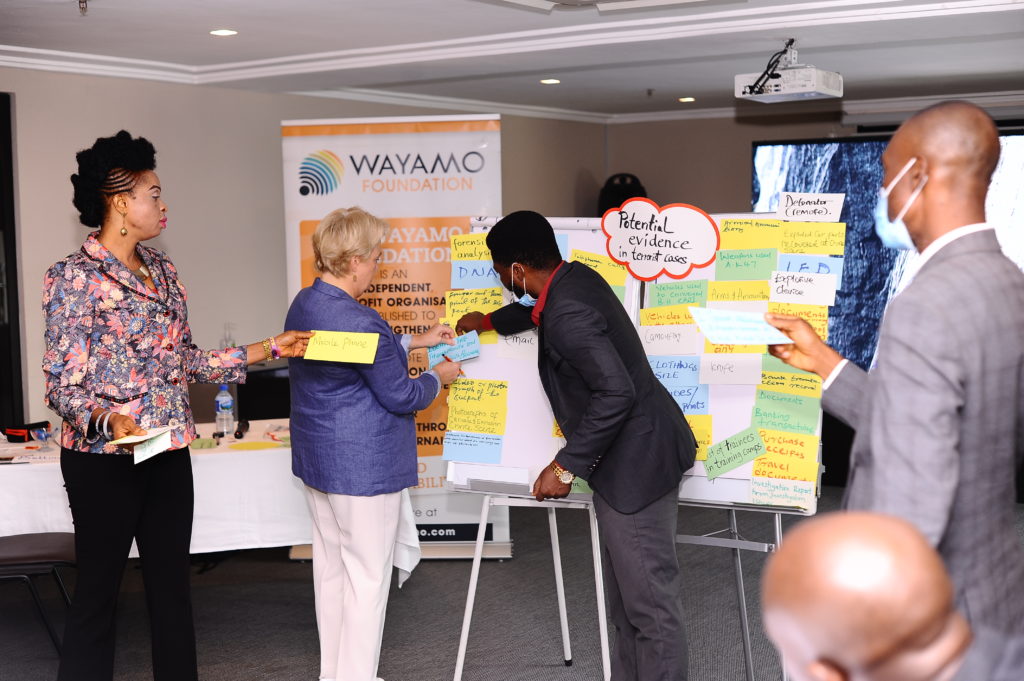
Group work with metaplan method.
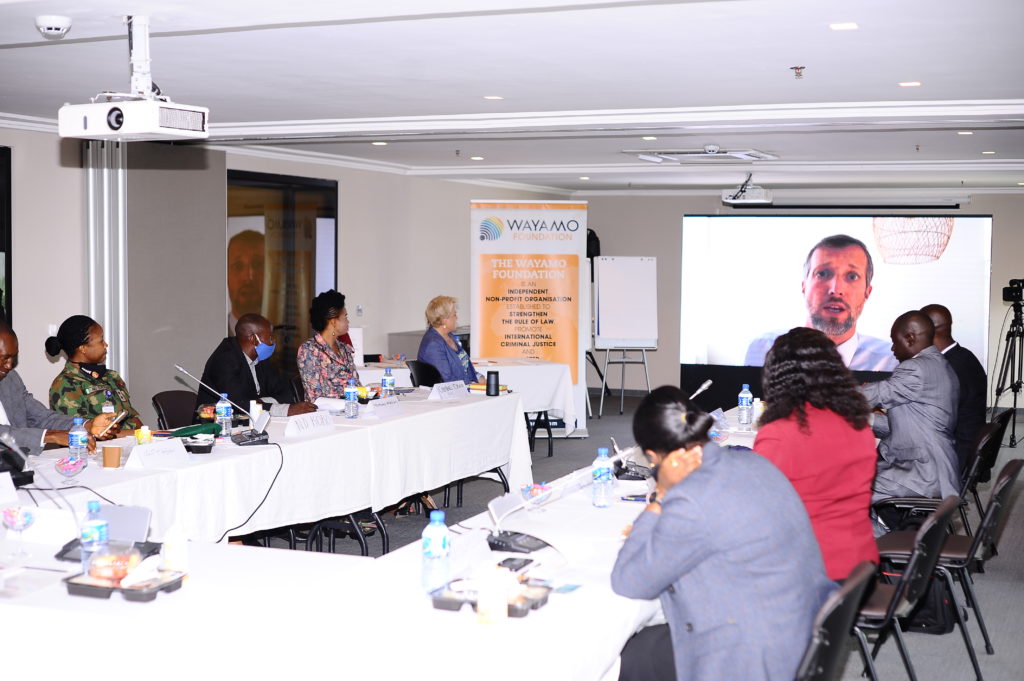
Claus Molitor, ICC Situation Analyst, joins the meeting with a pre-recorded video.
The day-long retreat, Wayamo’s first COVID-tailored event — a hybrid design combining face-to-face attendance with pre-recorded and live online lectures — was held on 2 November in Abuja. In opening the proceedings, Wayamo Foundation Director, Bettina Ambach, stressed that success is only possible where both sides, prosecutors and investigators, work together as “leaders in partnership”. To meet ICC requirements, it is as vital to have relevant court proceedings, as it is for the right type of evidence to be collected and the right kind of diversified charges to be brought.
A mix of experts from Nigeria and beyond now stepped up to the virtual podium.
Addressing the thorny subject of collaboration between the US military and law enforcement that emerged as a result of lessons learnt from the 9/11 attacks, INTERPOL’s Pierre St. Hilaire gave his audience no false illusions, “I can tell you it took us a very long time to get to a smooth collaboration between the military and law enforcement, simply because we were dealing with a culture issue (….) specifically, the culture of overclassification”. When it came to dealing with piracy, however, he had some good news for the prosecutors, saying that they could draw on and benefit from existing policies and best practices in other parts of the world.
Claus Molitor, ICC Situation Analyst at the Office of the Prosecutor updated the participants on the Court’s preliminary examination (the workshop took place before the ICC Prosecutors’ announcement on 11 December that the “statutory criteria for opening an investigation into the situation in Nigeria had been met”), explaining the tests applied to determine whether a potential case existed, and if so, whether it would be admissible. Turning to a quintessentially Nigerian example, he explained to the participants that membership of a terrorist organisation and failure to provide information about a terrorist act are not crimes under the Rome Statute.
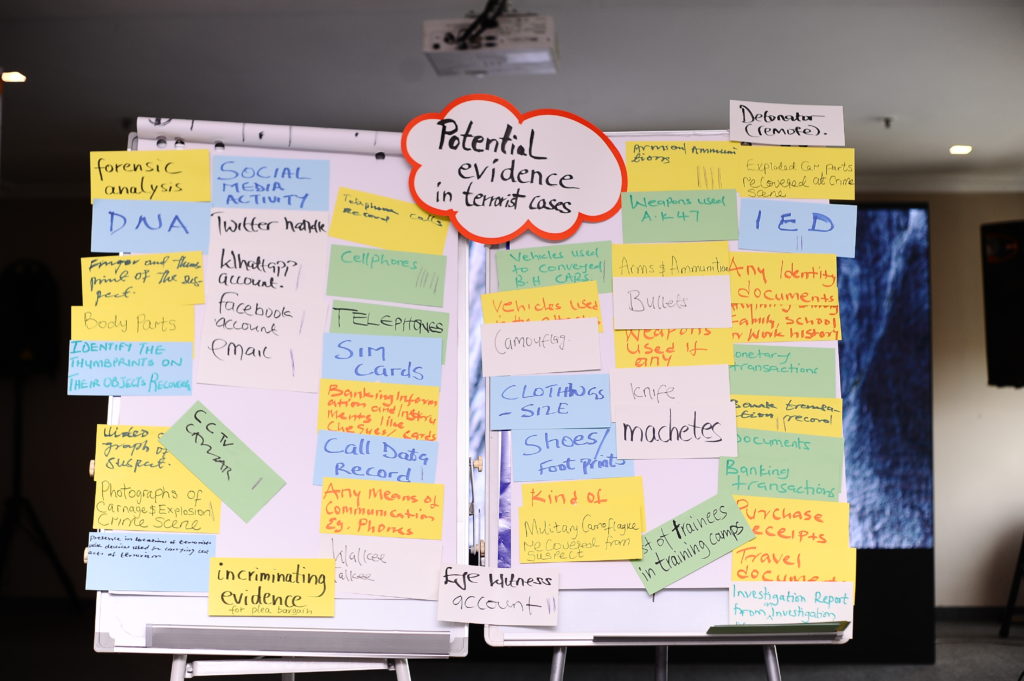
End result of group work on potential evidence in terrorist cases.
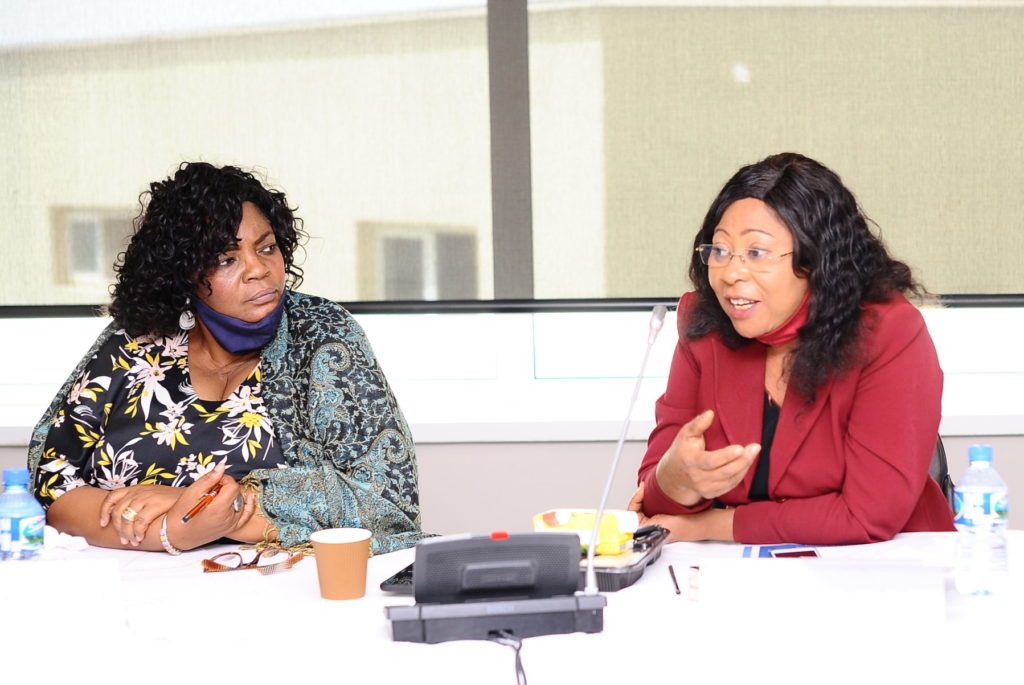
Aderonke Imana and Chioma Onuegbu, Head of the Complex Casework Group (CCG).
In an interactive Zoom session on the topic of prosecution coordination, Attorney-General and Commissioner for Justice of Ogun State, Akingbolahan Adeniran and international law specialist, Adejoké Babington-Ashaye, highlighted the gap between domestic prosecutions and the type of prosecution required by the ICC. In addition to the nagging problem of insufficient cooperation between the investigators in the North East and the prosecutors in Abuja, other perceived challenges included the weakness of confessional evidence and the need for an electronic case-management system. Based on their joint recommendations and what the participants themselves had to say, Bettina Ambach came forward to offer Wayamo’s support for the creation of an electronic database.
Battlefield evidence was discussed in depth by Lexpat Global’s team of Adam Pearlman and Michael Mullaney, who defined it as “just about everything that takes place on a battlefield”, and went on to stress that it is the way that such evidence is shared, stored and used that is all-important in the long run, the motto being “coordination is key!” Pearlman earnestly reminded the prosecutors that “evidence-based practices always make for stronger institutions, more credible enforcement operations, and more reliable results.”
Bettina Ambach made use of the day’s concluding session to get the participants’ recommendations for the way forward. These covered a wide spectrum, ranging from the need for legal training where the relevant investigators and prosecutors would come together, checklists for investigations, especially for the arresting officers, and the institutionalisation of inter-agency visits to Maiduguri, to the very real problems entailed in receiving proper documentary and photographic evidence as well as video evidence of statements and confessions, preventing the loss of evidence/exhibits, and drafting charges in line with ICC requirements.
A retreat that had focused on the pressing need for inter-agency collaboration was thus brought to a fitting close with an exercise that was at once practical and constructive.

